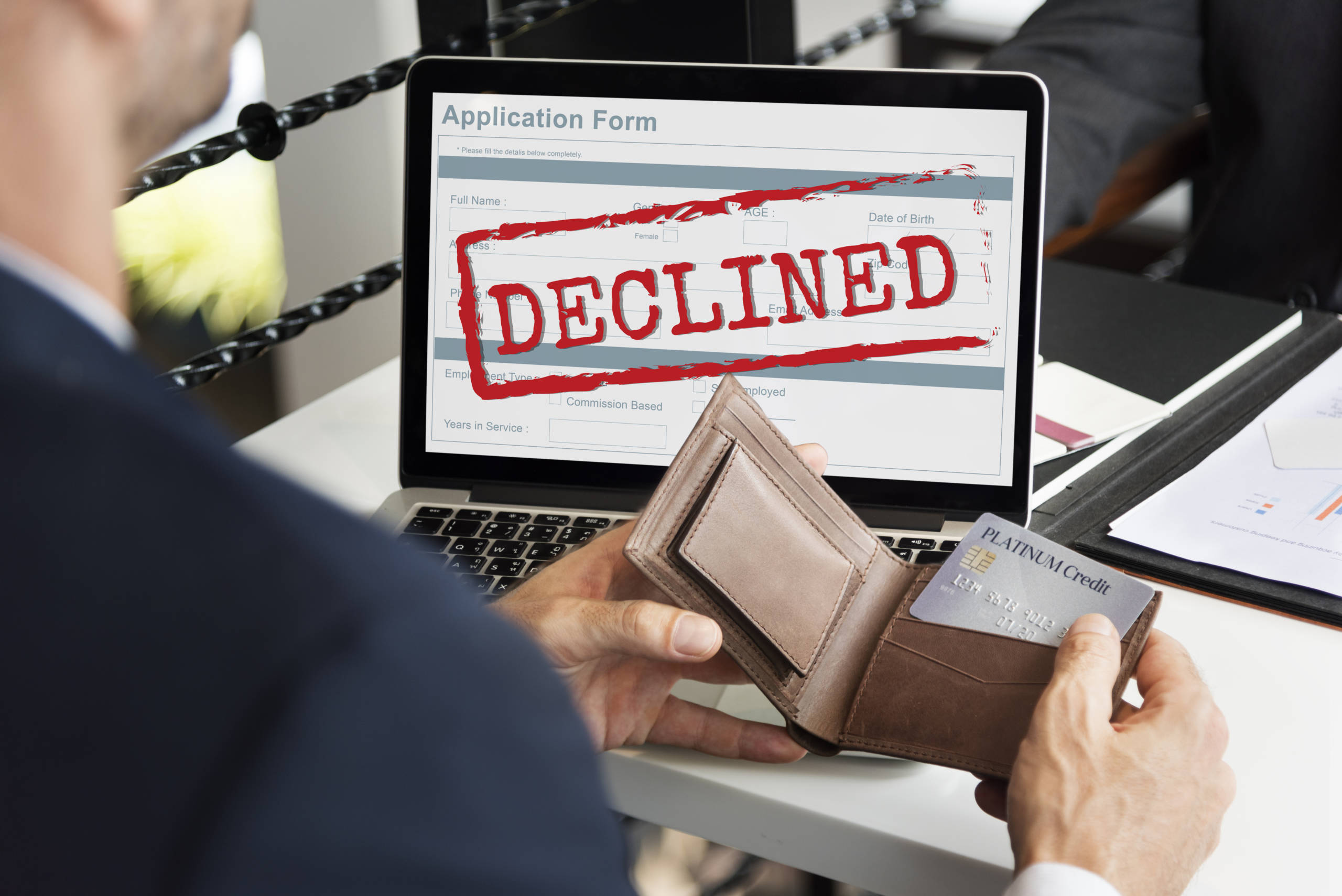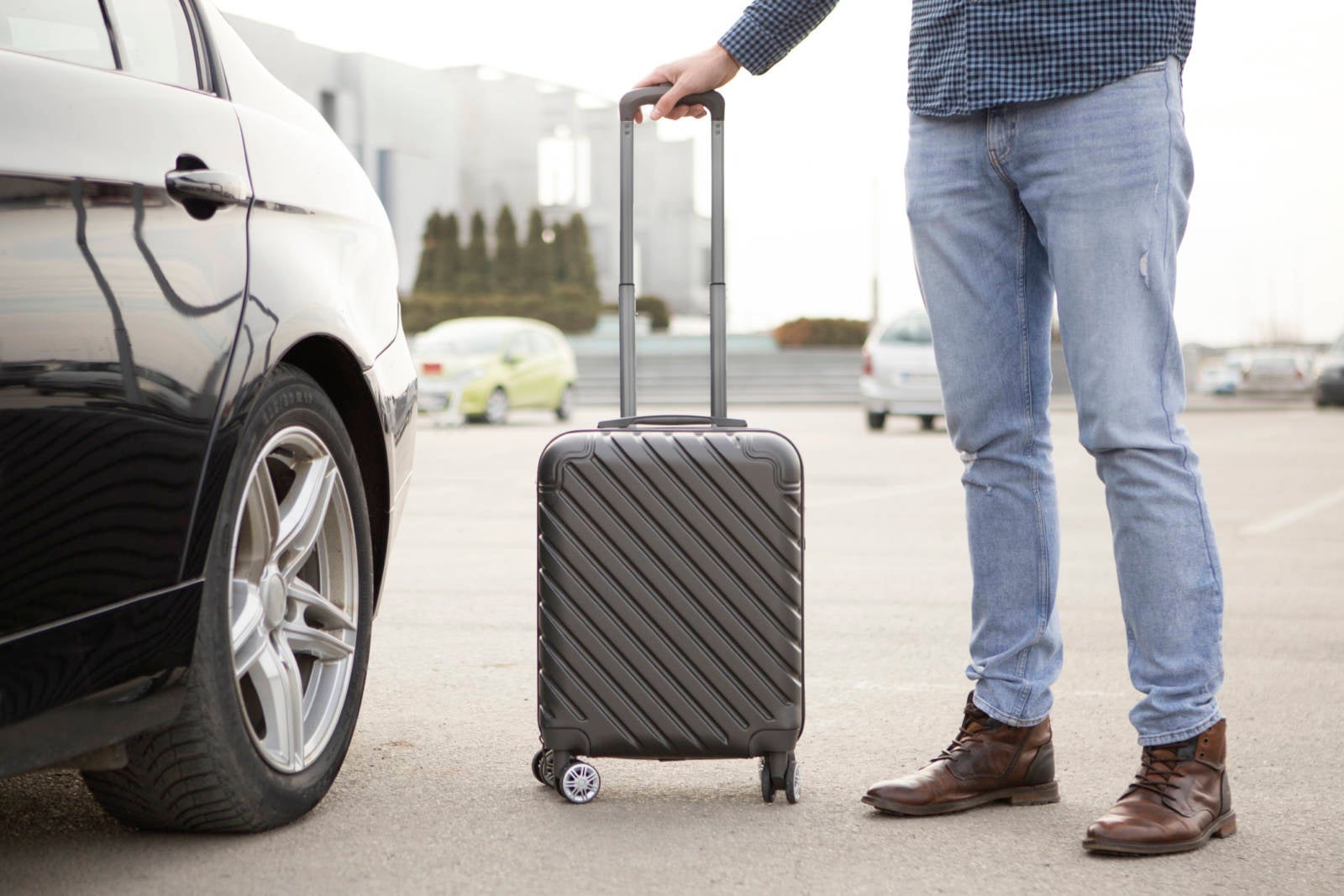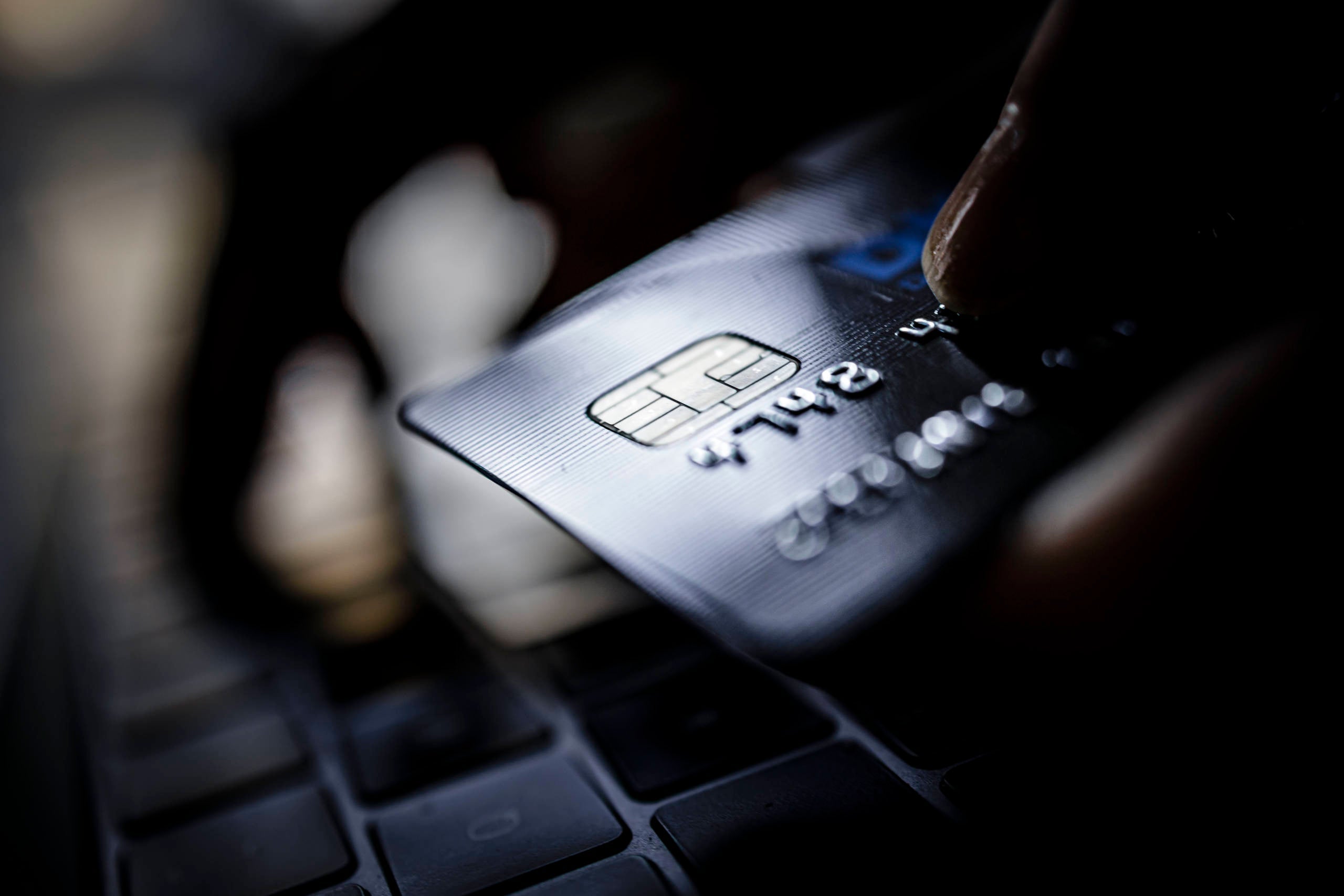7 reasons why your credit card may have been declined
We've all been there. You've waited in line at the grocery store for what seems like forever, or you've just volunteered to pick up the tab when you're out with friends for dinner — and then your card comes back -- declined.
Cards being declined are more common than you'd think, and there are a number of different reasons why a transaction may not go through on the first try. Here are the most common reasons why your card may have been declined.
Want more credit card news and advice? Sign up for TPG's daily newsletter
[table-of-contents /]
1. You're over your credit limit

The most common reason for a card to be declined is because you're over your credit limit, or the purchase in question would put you over your credit limit. While some issuers either don't have a set credit limit or let you charge above it for a fee, many issuers use your limit as a hard stop for purchasing power.
In general, it's best to keep your credit utilization below 30% for your credit score. But staying well below your credit limit also helps ensure your card won't be denied when it comes time to make a purchase.
Related reading: How to increase your credit limit
2. Large holds or pending transactions on your account
Even if you haven't hit your credit limit yet, your issuer may not allow new transactions if you have any large holds or pending transactions on your account.
Companies such as car rental agencies, hotels and gas stations often put temporary holds on your account to ensure that should they need to charge you a certain amount (typically higher than the amount you'll end up paying), your card won't decline. These holds show up in your pending transactions list and will factor into your card balance.

While they are temporary charges that should go away once the real charge is made to your account, it can take days for the hold to disappear and cause your issuer to decline a charge based on too high of a balance.

3. Your card is expired
Another common reason a card may decline is because the card itself expires. When you apply for a credit card, the physical card comes with an expiration date (typically at least a few years in the future). Most issuers are proactive in sending out new cards before those expiration dates hit, but if you've moved recently or don't check your mail often, a new card could sit in limbo while your current one expires.
I've had this happen to me with a card before. My first credit card was the Discover it Cash Back, and it expired last year. Upon getting my new card, I procrastinated activating it since I rarely use my Discover it these days. I ended up trying to use it a few weeks later on a small transaction just to keep the account active and it was declined. No harm, no foul since I had another card on me and the new one was at home waiting to be used. But I could have been out of luck in another situation.
4. Your issuer suspects fraudulent behavior

These days, issuers take a very proactive approach to fraud. Banks will monitor your accounts for suspicious activity to help catch fraud and potential identity theft to notify you as soon as possible. If an issuer suspects a foul play, they'll try to prevent the fraud by declining.
While this is great most of the time, it can be an issue when you travel or use your card for out-of-the-ordinary purchases. Typically, you can just call the number on the back of your card to clear things up. But if you know you'll be traveling soon, it never hurts to notify your issuer so they are aware. Most have a way to do this through the app or online account, but you can also call.
Related reading: How to spot and report credit card fraud
5. Missed payments
If you've missed several payments, your issuer may not allow you to make any additional purchases until your account is up to date. This is a way for credit card companies to mitigate the risk of having to eat those costs if it turns out you can't pay off your charges.
Related reading: A late payment cost me 40k points — reader mistake story
TPG always recommends paying off accounts in full every month as a rule of thumb, but I get that circumstances can pop up that make this impossible. If you have an upcoming bill that you know you won't be able to make, call your issuer to see what can be done. Sometimes they'll waive a minimum payment or offer an adjusted payment plan to help when they know the circumstances.
Related reading: Coronavirus credit card assistance
6. Human error
We're all human, and we all make mistakes sometimes. If your card was declined (especially for an online purchase that requires you to enter your payment details manually), it could just be that you entered your card details incorrectly.
Just last week I accidentally put in the wrong zip code when I was filling up my car at the gas station. I got so frustrated at the fact that the payment didn't process until I realized I'd used my old zip code.

7. Your account has been closed
If you can't think of another reason your account may be declined, check to make sure your account is still active. Credit card issuers shut down accounts for a number of reasons, such as inactivity, suspected foul play, a breach of the terms and agreements, too many missed payments and occasionally even by mistake on the card issuer's side.
You'll be notified of an account closure after the fact, but card issuers aren't required to give you advance notice. If you can't figure out why your card may have been declined, it's worth looking to see if you've received a recent notice that your account has been flagged or shut down entirely.
Related reading: Don't let Chase's shutdown pattern bite you
Always have a backup
It's a good idea to always have at least two or three cards on you, especially when you are traveling. Personally, I always keep at least one Amex, one Visa and my debit card on me when I travel. That way I know I'm covered across networks, I have access to my bank account funds and can switch cards should one decline for any reason.
Call your issuer
If you can't figure out why a card declines through your own sleuthing, call the number on the back of your card to talk to a customer service representative. More times than not it's an easy fix and you can go back to using your card as normal. If it's not an easy fix, talking to a representative should at least give you a better understanding of the next steps to take to resolve the problem.
Just remember that customer service agents are just the messenger. Yes, it's frustrating and annoying when your card gets denied for seemingly no reason. But these agents rarely, if ever, have any real control over your account status or details, so being impatient and rude will help no one. If anything, you might make them less inclined to go the extra mile to help you out.
Bottom line
No one wants to be declined when they are trying to make a purchase, but it's not the end of the world when it happens. If you've had a credit card for any length of time, you've likely gotten it declined at least once for one of the reasons above.
So long as you're keeping up with your payments and checking your account regularly, most declined transactions stem from an easily-fixable issue.
Related reading: My credit card kept getting declined — reader mistake story
TPG featured card
at Capital One's secure site
Terms & restrictions apply. See rates & fees.
| 5X miles | Earn 5X miles on hotels, vacation rentals and rental cars booked through Capital One Travel |
| 2X miles | Earn unlimited 2X miles on every purchase, every day |
Pros
- Stellar welcome offer of 75,000 miles after spending $4,000 on purchases in the first three months from account opening. Plus, a $250 Capital One Travel credit to use in your first cardholder year upon account opening.
- You'll earn 2 miles per dollar on every purchase, which means you won't have to worry about memorizing bonus categories
- Rewards are versatile and can be redeemed for a statement credit or transferred to Capital One’s transfer partners
Cons
- Highest bonus-earning categories only on travel booked via Capital One Travel
- LIMITED-TIME OFFER: Enjoy $250 to use on Capital One Travel in your first cardholder year, plus earn 75,000 bonus miles once you spend $4,000 on purchases within the first 3 months from account opening - that’s equal to $1,000 in travel
- Earn unlimited 2X miles on every purchase, every day
- Earn 5X miles on hotels, vacation rentals and rental cars booked through Capital One Travel
- Miles won't expire for the life of the account and there's no limit to how many you can earn
- Receive up to a $120 credit for Global Entry or TSA PreCheck®
- Use your miles to get reimbursed for any travel purchase—or redeem by booking a trip through Capital One Travel
- Enjoy a $50 experience credit and other premium benefits with every hotel and vacation rental booked from the Lifestyle Collection
- Transfer your miles to your choice of 15+ travel loyalty programs
- Top rated mobile app


